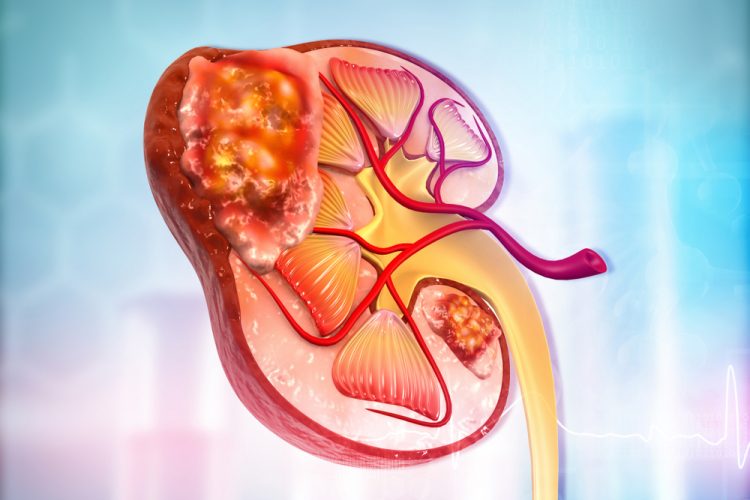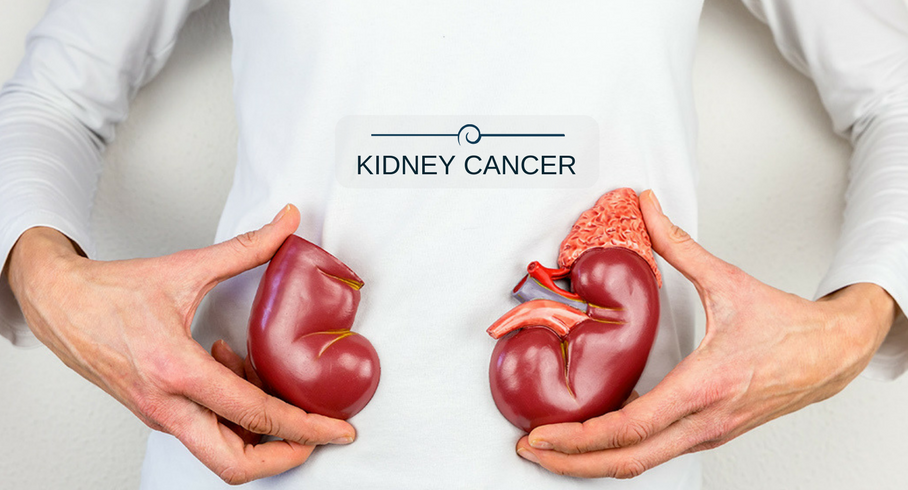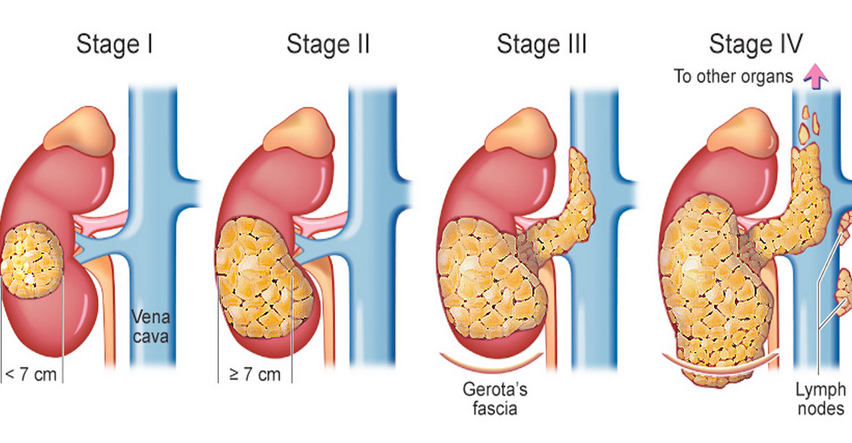Kidney Cancer: Overview and Stages of Progression
Kidney cancer is the ninth common cancer that occurs in men and the fourteenth common cancer in women, according to WCRF.
Detection of cancer itself is a matter of great concern. However, with the advanced kidney cancer treatment in India, the survival rates are also increasing.
Let me introduce you, one of our patients, Becky from Addis Ababa, Ethiopia.
Becky is a 48-year-old project manager in a reputed MNC in Addis Ababa, Ethiopia. Backy is a father of 2 boys and a wonderful wife, Lucy.
Three years back, Becky used to often feel tired while doing his daily routine work and also had lower back pain on one side. Becky went to the nearby doctor for a checkup, and the doctor prescribed him some medicine and asked him to take some rest. Medicine lowered the pain, but after some time the condition became the same.
One day, Becky saw blood coming out while he was urinating. He went to the hospital and met a urologist. The Urologist suggested doing a blood test, urine test, and ultrasound. Ultrasound reports detected an unusual lump in the kidney. The doctor suggested a CT scan for Becky for further verification. Becky did the test, and sadly, the tests confirmed that he had kidney cancer.


Becky and Lucy were both in shock after listening to the news of cancer. The doctor recommended visiting an oncologist for a further line of treatment.
Becky’s son Benny researched information regarding kidney cancer and the best possible treatment for it. While searching, Benny got in touch with MedicoExperts for kidney cancer treatment in India and left his inquiry.
MedicoExperts’ patient care executive got in touch with Benny, and Benny sent all the reports of his father to MedicoExperts to get the personalized treatment plan.
MedicoExperts also arranged the online video consultation for Becky with the head of the tumor board, who is himself a uro-oncologist. The doctor, after discussing with his board, prepared a tentative treatment plan and had one more call with Becky.
The doctor explained the treatment plan and also shared that Becky would go under thorough evaluation before zeroing in on the treatment plan. Becky decided to come to India for the treatment.
After 15 days, Becky comes to India for treatment with his wife Lucy. Becky was admitted to the hospital immediately after arrival. As planned, a thorough evaluation, including a PET SCAN, was performed. The investigations concluded that cancer was limited to the kidney only.
Surgery was needed to remove the kidney. The doctor told Becky three options for the surgery: open, laparoscopic, and robotic surgery. After understanding all the options, Becky chose robotic surgery.
Surgery was performed, and the infected kidney was removed successfully. The doctor also recommended a few cycles of chemotherapy after the surgery.
After completion of Chemotherapy, reevaluation was performed. The results were positive in favor of Becky.
Becky and Lucy were very happy with the outcome and thanked the doctors and MedicoExperts.
It could be your story as well.
Before understanding the different kidney cancer treatment options. Let’s understand what kidney cancer is.

Kidney cancer occurs within the cells of your kidneys. Your kidneys are two bean bag-like organs, each the size of your fist.
They are located behind your abdominal organs, with a kidney on either side of your spinal column.


Stage 1 is the lowest level of aggression and has the highest survival rate. The cancer tumor is relatively small at the early stage, so it is given a T1 designation.
At stage 1, the cancerous kidney is likely to be removed, and follow-up treatment may not be needed. The odds of recovery are good.
Stage 1 Survival Rate
The five-year survival rate for stage one kidney cancer is 81 percent. This means that out of 100 people, 81 people diagnosed with stage 1 kidney cancer will live more than five years after their initial diagnosis.
Stage 2 is more severe than Stage 1. In this stage, the tumor is larger than seven centimeters in diameter but occurs only in the kidney.
Stage 2 Survival Rate
As with stage 1, a stage 2 cancer kidney is likely to be removed, and follow-up treatment may not be required. The five-year survival rate of stage 2 kidney cancer is 74 percent. This means that 74 out of 100 people diagnosed with stage 2 kidney cancer will live more than five years after diagnosis.
There are two scenarios for third-stage renal cancer.
In the first scenario, the tumor became a major vein and a neighboring tissue but did not reach the neighboring lymph nodes.
In the second scenario, the tumor may be of any size and may occur outside the kidney. In this case, the cancer cells also invaded the adjacent lymph nodes but did not proceed further.
Stage 3 Survival Rate
In both cases, the therapy will be aggressive. If cancer has spread to the lymph nodes, they can be removed surgically. The five-year survival rate for stage 3 renal cancer is 53 percent. This means that 53 of every 100 people diagnosed with stage 3 kidney cancer will live another five years or more after they are diagnosed.
It can also be divided into two categories.
In the first, the tumor enlarged and reached the tissue beyond the kidney. It may have propagated to nearby lymph nodes, but it still has no metastases.
In the second, the tumor may be of any size, may be in the lymph nodes, and has metastasized to other organs
Stage 4 Survival Rate
The five-year survival rate at this point drops to eight percent. This means that 8 out of 100 people diagnosed with stage 4 cancer will live another five years after they are diagnosed.
Frequently Asked Questions (FAQs):
Q1. What is the latest treatment for kidney cancer?
A. For patients who have the most common type of kidney cancer, a new use of the targeted treatment for cabozantinib
Q2. Can kidney tumors be removed?
A. Most kidney tumors and kidney cancer are curable through surgery. Surgery is about removing the entire tumor in the safest way for every patient and can be accomplished via a variety of approaches such as open incision, laparoscopic surgery or robotic surgery.
Q3. How long is recovery after kidney removal?
A. Recovery from kidney ablation most often takes between 3 and 6 weeks. You can have some of these symptoms: Pain in your stomach or on the side where you had the kidney removed. The pain should improve within several days to a week.
Q4. Does tumor size determine stage?
A. Tumor size is highly dependent on prognosis (probability of survival). The smaller the tumor, the more likely the prognosis is to be good.
Next in Kidney Cancer

Author Bio:
Dr. Yashashree Joshi – MBBS, MD (Philippines)
Dr. Yashashree Joshi, MD, is a globally-trained oncologist with a robust academic background and extensive experience in pioneering cancer treatments. Dedicated to patient-centered care, she continually integrates the latest advancements in oncology to provide her patients with innovative and personalized treatment plans.
Content Medically Reviewed By MedicoExperts Editorial & Clinically Review Board




